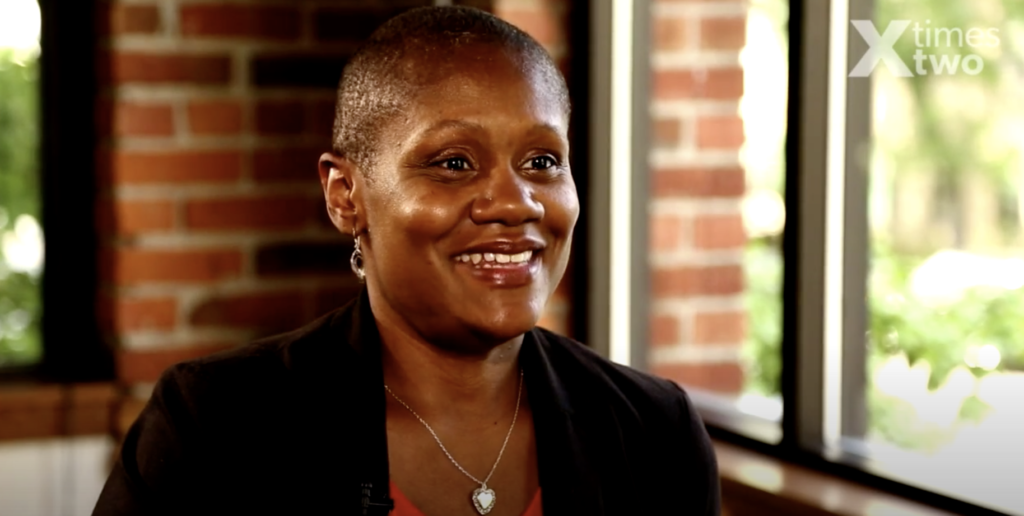Vital Strategies’ Overdose Prevention Program team highlights Black leaders who are making sure that empathy and equity are central to drug policy and public health programs that address the needs of people who use drugs.
Recently, the American Public Health Association named racism as a threat to public health, underscoring the need to follow and trust Black leadership to achieve equitable health practices in the United States. For people who use drugs, a public health approach can be supportive or harmful, and largely depends on how racism is influencing that approach. Many drug policies and practices that characterize a punitive response are founded in racism—and have made their way into hospitals, clinics and treatment programs. As a public health organization, Vital Strategies understands that the war on drugs harms the health and safety of people who use drugs.
As we acknowledge the consequences the war on drugs has on people who use drugs, we must also recognize and elevate Black thought leaders who continue to demonstrate a better way forward.
What follows is a non-exhaustive list of Black public health, harm reduction and drug policy thought leaders who are shifting and shaping the ways public health can better meet and address the needs of people who use drugs.
Monique Tula
As Executive Director of the National Harm Reduction Coalition, Tula and her team help advocates, policymakers and people who use drugs advance the need for and successes of harm reduction services around the United States. In an op-ed in Newsweek, Tula illustrates how combining harm reduction with public health can not only help reduce the overdose epidemic, but also help slow the spread of diseases such as Hepatitis C and HIV.
Ricky Bluthenthal
As the appointed Associate Dean for Social Justice at the Keck School of Medicine at the University of Southern California, Bluthenthal is blending social justice and public health with the goal of advancing public good. The goals of his office— “to address such issues as community health, disparities in the provision of health services and treatment, fairness in public health policy, and advocacy for the fair distribution of health services and treatment”—reflect his body of practice-based research in harm reduction and HIV over more than three decades.
Mona Bennett
As the Co-Founder of the Atlanta Harm Reduction Coalition, Benett made the intentional decision to speak with and listen to people who use drugs as experts about the services they needed. Because of this approach, the organization is able to develop outreach and programming that better meets the needs of people who use drugs. In this radio interview, Benett explains how the organization partnered with people who use drugs and public health students from the Rollins School of Public Health at Emory University to deliver the services needed most.
Dr. Helena Hansen
As an Associate Professor in the Departments of Anthropology and Psychiatry at New York University, and a research psychiatrist at the New York State Office of Mental Health’s Nathan Kline Institute, Dr. Hansen has committed her research and clinical practice work to unpacking and mapping the interconnectedness of race, drug use, drug treatment and harm reduction. In her presentation “Addiction Rounds: Race, Industry and Policy in the U.S. War on Drugs that Wasn’t,” she speaks to how race impacts drug use, treatment and support in a variety of different ways
Deon Haywood
As the Executive Director of New Orleans-based non-profit, Women with a Vision, Haywood leads efforts to conduct street outreach that focuses on harm reduction with and for people who face barriers to accessing good public health services, which includes but is not limited to, sex workers, people who use drugs, and people who are HIV-positive. In this radio interview, Haywood explains the intricacies of the barriers to accessing care that marginalized communities often face.
Najja Morris
As the Director of the LEAD National Support Bureau at the Public Defender Association, Morris focuses on the areas of harm reduction, case management and direct services to help improve non-carceral outcomes for people who use drugs. With conversations about police violence reaching levels of national urgency, the LEAD National Support Bureau released a statement which stated they are changing the program’s acronym meaning to “Let Everyone Advance with Dignity” because they feel they now “have a new option for LEAD operations that de-centers law enforcement as gatekeepers to LEAD services.” Morris told Filter Magazine she welcomes this shift, stating, “Now is the time for us to make the final push to get the police completely out of the gatekeeping role.”
Click image to watch video…

To learn more about Vital Strategies’ Overdose Prevention Program, please visit https://www.vitalstrategies.org/programs/overdose and follow us on Twitter @VitalStrat.